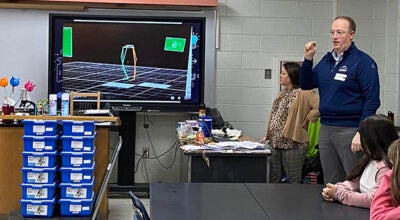Internet needed now
Published 4:33 pm Thursday, July 9, 2020
|
Getting your Trinity Audio player ready...
|
Senator Frank Ruff and Delegate James Edmunds announced on June 25 that Comcast would begin a network expansion project this year to extend broadband service to more than 775 addresses in neighboring Brookneal, but where does that leave Charlotte County?
One former resident Stephanie Claybrook has hopes of one day returning to Charlotte County to build, but the lack of internet availability is making her and her husband hesitant to move.
“We moved to Campbell County in 2007, and it had always been my husband’s plan to move back to Charlotte County and send our children to Randolph-Henry High School,” Claybrook said. “But we are hesitant to move, as our children will be at a disadvantage with no internet and no cell phone service.”
Similar Comcast expansions are expected in portions of Virginia in the coming months, according to a press release from Senator Ruff’s office, but there was no mention of Charlotte County listed.
According to Claybrook, she is still waiting and wondering as to what happened to free broadband access that was slated for more than 3,000 students in 1,000 homes by the end of 2017 in Charlotte and Halifax Counties.
In the May 24, 2017 edition of The Charlotte Gazette the Mid-Atlantic Broadband Communities Corp. (MBC) and Microsoft Corp. announced the launch of an innovative Homework Network to deliver broadband Wi-Fi internet access at homes to thousands of students in Charlotte and Halifax at no cost to their families.
According to the published release, Microsoft and MBC are activating the largest Homework Network in the U.S. — starting in Charlotte and Halifax counties — with support from the Virginia Tobacco Region Revitalization Commission.
“I’ve spoken to friends who signed up for the plan and never heard back. I spoke with one who signed up for the plan, and they called her and said it wasn’t available in her area.” Claybrook said.
Claybrook said she recently followed up with Sen. Ruff on the 2017 plan to provide internet to students.
“I think Charlotte County residents deserve to know more about why this plan never came to fruition,” she said. “If the ‘take rate’ wasn’t high enough, what was it exactly? What can be done to increase it? Is it too late now? What were families asked to do to sign up? Was it challenging to sign up, were they asked for income, were there any obstacles to the process? Where is the data to support the conclusion that not enough signed up?”
In an email to Claybrook, Sen. Ruff wrote, “The original pilot program was funded jointly by Microsoft, MBC, and the Tobacco Commission. That totaled $560,000. That included the needed equipment for the area of Charlotte, Northern Halifax, and Southeastern Campbell counties. Most of that money went for engineering, equipment, and outreach to qualifying households. (qualification included having school-age children).
The pilot went to some households that are currently using it. Others no longer use it because they might have moved, switched to a provider that allows them usage for more things such as watching movies, or they no longer have school-age children.
All money was spent as agreed upon. The response and take rate were not high enough to justify more investment. Several providers are trying to gather the funds needed to buy down the capital cost to make broadband investment a reality. The current assumption is that $500 million will be needed.”
With the announcement last week that Charlotte County Public Schools will be offering students 100% online instruction Claybrook said, “I think it’s time to put the pressure on our elected officials to help this rural area out. In this day and age of virtual learning becoming a longer-term reality, I think all students deserve equal opportunities and access to the internet.”




